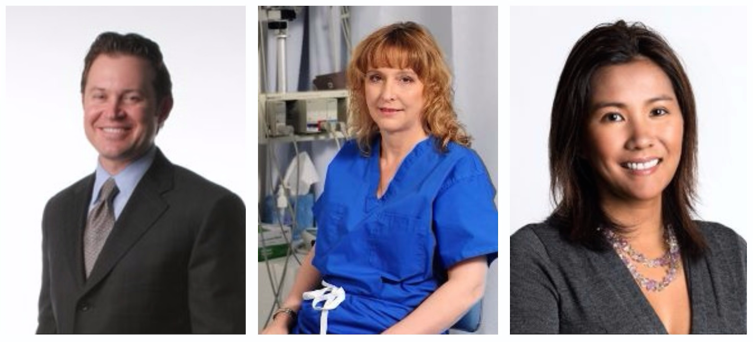In recent years, several women have reported that their breast implants were making them very ill. Many have taken to online groups devoted to exposing what they call breast implant illness.
A small, but vocal, group of plastic surgeons believes that the concerns over breast implant illness (BII) are merited, at least in some cases. However, major plastic surgery organizations and many practicing surgeons disagree, and the US Food and Drug Administration (FDA) has not issued any statements in support of these women’s claims.
What are we to think? Do breast implants cause illness? If you’re experiencing strange symptoms, are they caused by your breast implants, and if so, should you have the implants removed?
We interviewed three experts, each with different opinions on the subject, to help you sift through the confusion. Here is what they told us.

Breast implant illness symptoms
Several groups have been formed by and for women claiming that their breast implants have led to health problems.
Perhaps the most prominent is The Implant Truth Survivors Committee (TITS), whose website defines it as a group formed to “help bring awareness to the dangers of breast implants, provide support to women who are suffering and engage the FDA in a heart to heart about acknowledging that breast implants are not safe for everyone.”
According to this organization, BII is a “global epidemic that can cause anything from fibromyalgia and lyme disease to autoimmune disorders.”
TITS has compiled the following list of symptoms of breast implant illness it says have been reported by women who have experienced BII:
[toggle title=”SYMPTOMS OF BII – THE IMPLANT SURVIVORS TRUTH COMMITTEE“]
- Ear ringing
- Sudden food intolerance and allergies
- Headaches
- Slow muscle recovery after activity
- Heart palpitations, changes in normal heart rate or heart pain
- Sore and aching joints or shoulders, hips, back-bone, hands and feet
- Swollen and tender lymph nodes in breast area, under the arm, throat, neck or groin
- Bouts of dehydration for no reason
- Frequent urination
- Numbness and tingling sensations in upper and lower limbs
- Cold and discolored limbs, hands or feet
- General chest discomfort, shortness of breath, pain, and burning sensation around implant or underarm
- Liver and kidney dysfunction
- Cramping (muscles)
- Toxic shock symptoms
- Symptoms of or diagnosis of fibromyalgia
- Symptoms of or diagnosis of Lyme disease
- Symptoms of or diagnosis of auto-immune diseases
- Anxiety
- Depression
- Panic attacks
- Mood swings
- Fatigue
- Joint Pain
- Muscle pain
- Muscle weakness
- Insomnia
- Brain fog
- Difficulty concentrating
- Memory loss
- Vertigo
- Fever or chills
- Temperature intolerance
- Sensitivity to light
- Sensitivity to sound
- Difficulty swallowing
- Hair loss
- Dry skin or hair
- Slow healing
- Sinus infections
- Recurrent illness
- Yeast infections
- Visual disturbance
- Choking feeling
- Ringing in ears
- Decreased libido
- Sharp pains in breast
- Weight gain (unexplained)
- Weight loss (unexplained)
- Swollen or tender lymph nodes
- Chronic fatigue symptoms
- Inflammation
- Heart palpitations
- Irritable bowel or bladder
- Shortness of breath
- Night sweats
[/toggle]
Is breast implant illness real? What the experts say
Several groups have weighed in on the potential risks associated with breast implants, but there are differing opinions among experts as to whether breast implant illness even exists.
The FDA has not commented specifically on reports of breast implant illness, but has stated that it has found no evidence of association with connective tissue diseases. The agency believes that breast implants are reasonably safe and effective if used properly; emphasizes that breast implants are not lifetime devices; and believes that plastic surgeons should provide women with safety information for the various available implants.
The American Society of Plastic Surgeons (ASPS) states, “Breast implants do not impair breast health. Careful reviews of scientific research by independent groups such as the Institute of Medicine have found no link between breast implants and autoimmune or other systemic diseases.”
Indeed, many practicing plastic surgeons — but not all — see little if any evidence to support the claims of groups such as The Implant Truth Survivors Committee.
“Overall, the symptoms reported for BII are vague and can be attributed to a number of maladies,” says Dr. Greg A. Buford, a board-certified plastic surgeon in Englewood, CO. “There is no hard science to correlate these symptoms with the presence of breast implants. Instead, the movement to substantiate and give support to this illness is almost entirely through chat rooms and anecdotal reports.”
Buford is concerned that a few plastic surgeons are feeding into the “frenzy,” as he puts it, over BII and effectively keeping the conversation alive. “Instead of relying on hard science to make their points, they are developing their own theories without anything to back these theories,” he says. “The concern is that these physicians are doing so in a very self-serving manner and without the support of the scientific or medical communities.”
Buford does not completely discount the possibility that a woman could have a reaction to her implants, because a person can have a reaction to literally any substance, but he believes that the sheer number of women receiving breast implants per year as compared to the number reporting this mysterious illness just doesn’t add up.
However, other experts are adamant that the FDA and others are not following the science. Maybe the most vocal and well known plastic surgeon among this group is Dr. Susan Kolb, who not only has spent years treating women who believe their implants are making them sick but also had silicone implants that she believes made her ill.
According to Kolb, many women become ill from breast implants due to silicone and chemical toxicity in silicone and biotoxicity from mold in saline.
“The Dow Corning engineering data shows that the implant shell degrades at eight to ten years due to a lipolysis reaction,” she says. “Science shows that silicone is an adjuvant capable of causing autoimmune disease, that mold can grow in and around saline implants, that fibromylagia is common with ruptured implants, and that patients with certain HLA types [part of the immune system] become very ill when exposed to silicone.”
“About half of the capsular bacterial cultures that we take during surgery grow out bacteria such as MRSA, e coli, and pseudomonas,” Kold adds. “The plastic surgeons who say otherwise have not read the medical literature and have failed their patients who return to them with systemic illness by telling them that their implants are not the source of their problems, when in fact they are. The ethics of this problem are obvious.”
Kolb also points out that the FDA’s website includes an article showing that women with ruptured silicone breast implants had a high likelihood of having fibromyalgia, yet the agency continues to tell the public that implants do not cause systemic disease.
Over the years Kolb has seen thousands of patients she says were ill from leaking or ruptured silicone implants. She treats these women by performing breast implant removal — an explant procedure — and providing detoxification supplements at Plastikos, her clinic in Atlanta.
According to Kolb, many of these women have seen doctors who said that their illnesses were not due to their implants, yet they recovered after breast removal surgery, treatment of co-infections, antifungals, and detoxification.
Kolb is not alone among experts in her concern over the potential dangers of breast implants. Some say that science has yet to establish an associations between silicone breast implants and immune related conditions, yet still feel that there is enough anecdotal evidence to suggest that BII is a real phenomenon.
“Even though there have not been conclusive studies about the direct clinical correlation between implant and illness, there have been real patient stories with real experiences of symptom improvement and overall well-being after implant removal,” says Dr. Cheri Ong, a board-certified plastic surgeon in Scottdale, AZ who is also a passionate advocate for women’s health.
“As a plastic surgeon with functional medicine training, I believe that it is not all psychological,” Ong continues. “We just do not know and may not be able to clearly define the pathways on why some things occur. There is still a lot to be learned regarding the topic, and I believe that that some of us are more predisposed or more ‘sensitive’ to certain materials based on our genetic makeup.”
Ong believes that the culprit might be found in a patients’ genes. “We know that some of us have genetic makeup that does not allow some of our detoxification pathways to function properly (MTHFR). In addition, all of us have certain environmental triggers or food that increases the inflammatory response in the body that are mediated differently from a true allergy reaction,” says Ong.
Ong points out that for most patients the cause is not their breast implants. She says that overall well-being usually improves with correction of nutrient deficiencies, elimination diets and improvement in the patient’s immune system. But she feels that if other causes are not identified, it is reasonable for the patient to have the implants removed, so long as they are well-educated and informed on the topic.
Understanding Breast Explant Surgery
The conversation around what is breast implant illness has undeniably stirred concerns, leading many to reconsider their decision to have breast implants. Whether driven by personal health concerns or a change in aesthetic preference, individuals contemplating the removal of their breast implants have several pathways to explore.
Opting for breast explant surgery—removing implants without replacement—offers a direct approach for those seeking to part ways with their implants. This choice might stem from health concerns associated with BII or simply a desire for a change. For those looking to maintain breast volume post-explant, alternatives exist that cater to various needs and preferences.
Revising your augmentation with new implants, potentially of a different size or material, presents one route, often combined with a breast lift to address any changes in breast shape or position. Alternatively, fat grafting emerges as a promising solution, utilizing your body’s fat to enhance breast volume naturally. This method not only reduces the risk associated with synthetic implants but also offers a more natural result and feel.
For those seeking non-surgical options, breast enlargement creams offer a non-invasive alternative. While their effectiveness varies, these creams can sometimes provide a slight increase in breast size and are worth considering for those cautious about undergoing surgery or dealing with the potential implications of breast implants.
Deciding to remove breast implants is a personal journey, influenced by a myriad of factors including health concerns, lifestyle changes, and aesthetic preferences. Exploring all available options, from surgical removal to natural augmentation methods, ensures that your decision aligns with your well-being and aesthetic goals.
This revision aims to provide a comprehensive overview of options available for those considering the removal of breast implants, addressing concerns around breast implant illness while also highlighting alternative methods for maintaining breast volume, including surgical and non-surgical paths.
Removing breast implants: breast explant surgery
Whether breast implant illness is a real phenomenon or not, even the idea that breast implants could potentially lead to illness has obviously made some very concerned. Those who are worried that their breast implants are causing problems, or who simply don’t want the implants anymore, do have a few options.
One is to have the implants removed without replacing them. If you are interested in removing your implants but preserving volume, there are other options. One is to go with a new, possibly smaller, implant; this can be performed with or without a lift component, depending on your situation. Another option is fat grafting, in which fat is taken from a different area of your body and injected into your breasts.








